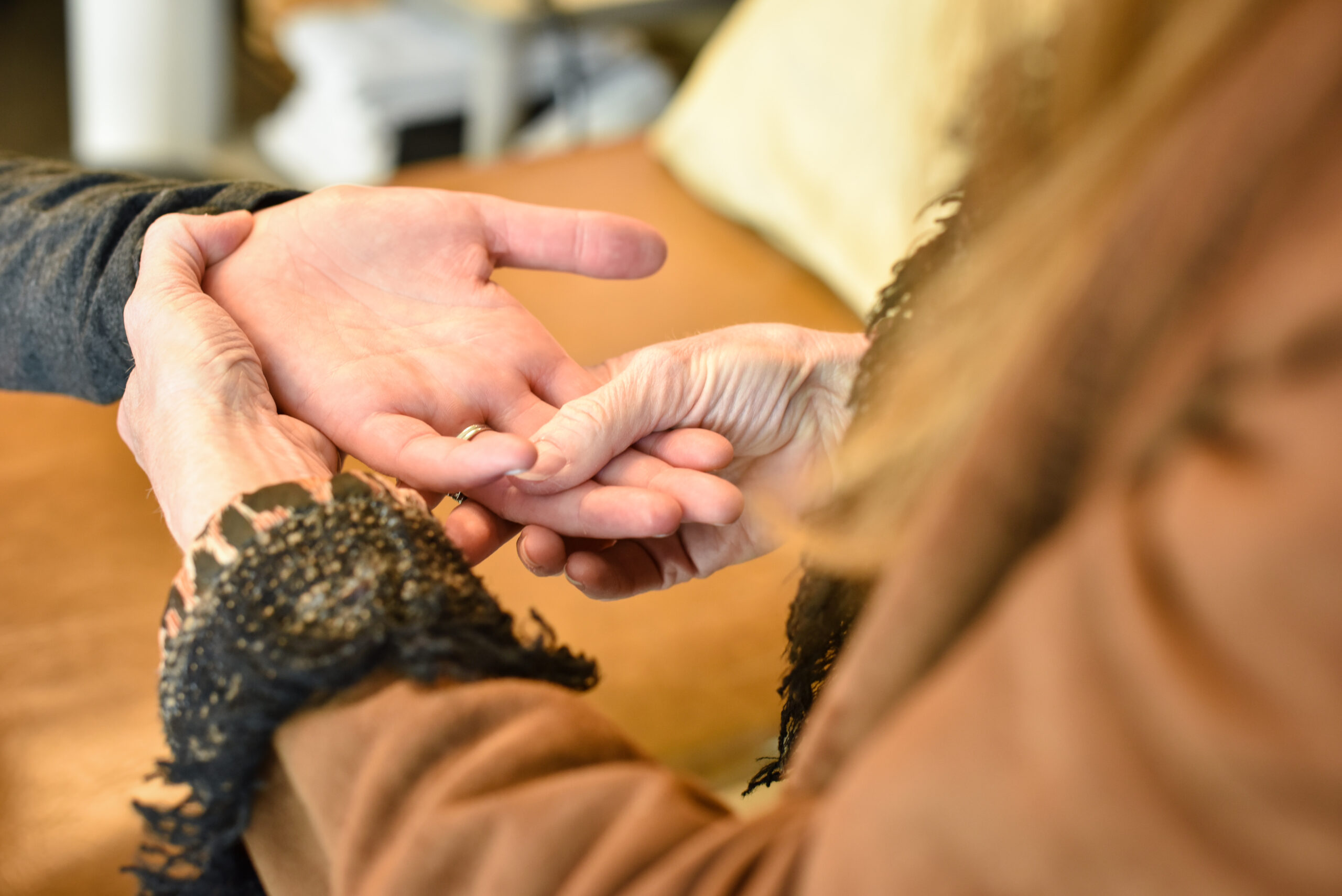Are You Experiencing Pain, Numbness or Weakness in Your Hand? You May Have Carpal Tunnel Syndrome
 Do you have pain, numbness or weakness in your hands? Do you notice a tingling sensation when you’re holding things like your phone or the steering wheel? Does this happen more frequently at night or when you first wake up? You may have Carpal Tunnel Syndrome or CTS. It develops slowly, usually in your dominant hand first, and can often be ignored as your hand falling asleep or just tingling from lack of movement. As the syndrome progresses though, the weakness becomes more frequent in your thumb and the first three fingers. As time goes on you may find that you drop things more frequently and struggle to make a fist or fully grasp objects.
Do you have pain, numbness or weakness in your hands? Do you notice a tingling sensation when you’re holding things like your phone or the steering wheel? Does this happen more frequently at night or when you first wake up? You may have Carpal Tunnel Syndrome or CTS. It develops slowly, usually in your dominant hand first, and can often be ignored as your hand falling asleep or just tingling from lack of movement. As the syndrome progresses though, the weakness becomes more frequent in your thumb and the first three fingers. As time goes on you may find that you drop things more frequently and struggle to make a fist or fully grasp objects.
What is Carpal Tunnel Syndrome?
Carpal tunnel syndrome is a condition in the hand and wrist caused by excessive pressure on the median nerve. The median nerve controls sensation and the movement of your first three fingers and thumbs. This nerve, along with flexor tendons, runs from the forearm, through the carpal tunnel, to the hand. The carpal tunnel is a narrow passageway on the inside of your wrist. Anytime there is inflammation in the area, the narrow passageway puts pressure on the median nerve, compressing it and causing pain. Pain can present itself in both hands.
Don’t have Carpal Tunnel Syndrome but wonder if you’re at risk?
You may be at a higher risk for CTS. Certain conditions can increase your risk, including pregnancy, rheumatoid arthritis, hypothyroidism, alcoholism and obesity, among other conditions. Although your job is not to blame for CTS, certain types of work may also be linked to the syndrome. These jobs include computer work, assembly line work, use of vibrating tools, or other jobs that require repetitive flexion and extension of the wrist or repetitive exertions. If CTS is ignored for too long, the muscles near your thumb will begin to waste away, making strength renewal and sensation repair more difficult. Is some cases, if the syndrome gets too bad, complete repair may not be possible.
What should you do if you think you have Carpal Tunnel Syndrome?
If you think you have CTS visit your doctor for a diagnosis. A diagnosis can be determined based on your symptoms, signs and physical tests. If needed, you doctor may also order an EMG or nerve conduction study, to measure how quickly the median nerve responds and assess how much damage there is to the nerve. If you are diagnosed with CTS your doctor may discuss surgical and non-surgical options with you on a case by case basis. Improvement can be made by resting your hands and wearing a wrist splint or brace. However, if you do not find relief with moderate treatment your doctor may recommend corticosteroid injections, as they can reduce inflammation and temporarily reduce symptoms.
Your doctor recommended Surgery, what should you expect?
If your doctor recommends surgery it is usually done outpatient and is known as carpal tunnel release surgery. Surgery can be done as an open procedure or an endoscopic procedure. Based on the procedure your surgeon chooses, one to two small incisions are typically made to reach the carpal ligament. The ligament is then gently cut to relieve the pressure on the median nerve and the forearm fascia is loosened to further open the carpal tunnel. As the ligament heals it allows more room for the nerve. Immediately following surgery, it is common to have pain, swelling or stiffness around the hand and near the incision. This may last for several weeks as the ligament fully heals. Carpal tunnel release typically provides complete relief of numbness, tingling and pain, depending on the severity of the condition.
If you suspect you have carpal tunnel syndrome it is important to see your doctor for a complete diagnosis. You don’t have to live with the pain, call your doctor today @ 435-615-8822.
Leave a Reply